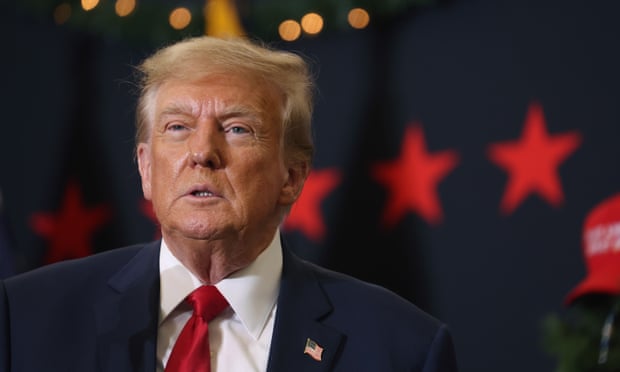Many Americans are optimistic that the courts will prevent them from facing an electoral reckoning with Trump.
The Colorado Supreme Court has determined that the former president is ineligible to hold office. However, there is skepticism that the U.S. Supreme Court will reach a similar conclusion.
"This is how dictatorships are born." This was Donald Trump's reaction to the Colorado Supreme Court's decision disqualifying him from holding office and removing him from the state's Republican primary ballot.
Whenever Trump references "dictatorships" nowadays, it warrants attention. His words strongly suggest an inclination toward dictatorial rule if he were to win in 2024. The intent behind his statement in a fundraising message sent out shortly after the news remains unclear—it could be interpreted as either a condemnation of the ruling or a prediction of how he would navigate such legal setbacks if he were to return to the White House.
The fear of a potentially dictatorial Trump leveraging the presidency to manipulate the rule of law for political retribution is what keeps millions of Americans holding onto the hope that the court system will prevent an electoral confrontation with Trump. Despite President Biden facing persistently weak polling numbers and Trump transforming legal challenges into a formidable fundraising machine, it doesn't necessarily indicate Trump winning the national popular vote in 2024. However, the inherent flaws in our electoral college system could, once again, enable Trump to secure the presidency without winning the popular vote.
So, the hope remains that our court system will shield us from the flaws in our electoral system and our democratic shortcomings. However, the recent ruling in Colorado doesn't provide the answer sought. Not because the Colorado Supreme Court made the wrong decision—it was deemed brave and correct. A previous lower court concluded that Trump engaged in insurrection on January 6, 2021, but argued that the 14th Amendment's prohibition against insurrectionists holding office didn't apply to the presidency. The Colorado Supreme Court rejected this, stating it would be nonsensical to disqualify every oath-breaking insurrectionist except the most powerful one.
The court, divided with three dissenters, disqualified Trump from the presidency and instructed the Colorado secretary of state to remove his name from the primary ballot. The court stayed its own ruling, anticipating Trump's appeal, which is likely to reach the U.S. Supreme Court. The author expresses skepticism about how the U.S. Supreme Court will handle the case. Ideally, it should uphold the Colorado ruling unanimously to weather potential protests and unrest. However, the author predicts that the court will likely overturn the decision, citing its tendency to hide behind judicial modesty and let voters decide Trump's fitness for office.
The article suggests that the court's refusal to intervene may be seen as extreme partisanship, especially considering other pending cases related to Trump's claims of immunity and the charges stemming from the January 6 insurrection. While the court might not accept Trump's broad immunity argument, it could rule in a way that benefits Trump's strategy of delay. The author concludes that while the Supreme Court might avoid a direct reckoning with Trump, the American people will not be able to escape the consequences.

Comments
Post a Comment